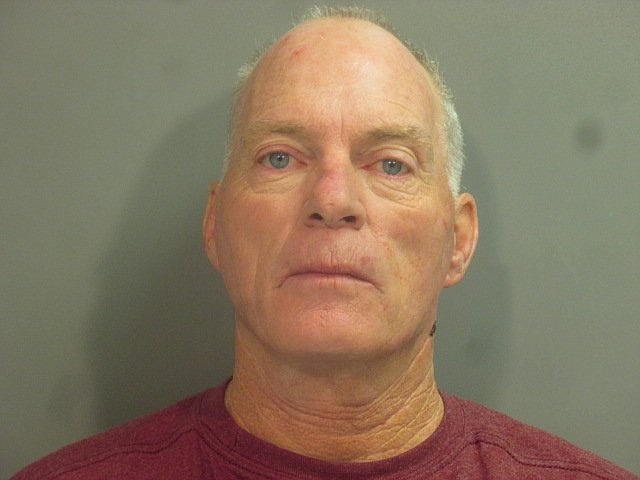An attorney for Richard "Bigo" Barnett of Gravette has asked that his May 3 sentencing be postponed.
In a motion filed late Monday, Jonathan Gross wrote that a 107-page decision issued Friday by the U.S. Court of Appeals for the District of Columbia in United States v. Fischer addresses the question of "whether individuals who allegedly assaulted law enforcement officers while participating in the Capitol riot can be charged with corruptly obstructing, influencing, or impeding an official proceeding, in violation of 18 U.S.C. 1512(c)(2)," quoting from the ruling.
"The decision raises new issues that directly and specifically impact Mr. Barnett's case, and Mr. Barnett respectfully asks this Court for a reasonable amount of time to properly review and analyze the complicated decision, to decide if a supplement to his pending Rule 29 or Rule 33 motions is appropriate, and if so, to brief a supplement," wrote Gross.
A Rule 29 motion is for a judgment of acquittal.
A Rule 33 motion is a motion for a new trial.
U.S. District Judge Christopher R. Cooper has yet to rule on Barnett's motions for acquittal or a new trial, which were both filed Feb. 5.
18 U.S.C. 1512(c)(2) is one of the eight charges that a jury found Barnett guilty of after a two-week trial in Washington, D.C., in January. Barnett was accused of impeding police officers, but not assaulting any of them, during the Capitol riot on Jan. 6, 2021.
Barnett faced enhanced charges for carrying a stun gun into the U.S. Capitol, where he posed for photos with his foot on a desk in House Speaker Nancy Pelosi's office suite.
Barnett faces a maximum penalty of 47 years in prison.
Hundreds of participants in the Jan. 6, 2021, riot at the U.S. Capitol have been charged with violating 18 U.S.C. 1512(c)(2).
The statute reads:
"(c) Whoever corruptly--
"(1) alters, destroys, mutilates, or conceals a record, document, or other object, or attempts to do so, with the intent to impair the object's integrity or availability for use in an official proceeding; or
"(2) otherwise obstructs, influences, or impedes any official proceeding, or attempts to do so, shall be fined under this title or imprisoned not more than 20 years, or both."
On March 7, 2022, in the case of United States v. Garret Miller in the District of Columbia, U.S. District Judge Carl J. Nichols dismissed the charge against Miller, concluding that 18 U.S.C. 1512(c)(2) "must be interpreted as limited by subsection (c)(1) and thus requires that the defendant have taken some action with respect to a document, record, or other object in order to corruptly obstruct, impede, or influence an official proceeding."
Nichols granted similar motions to dismiss 18 U.S.C. 1512(c)(2) in two other cases. Federal prosecutors appealed those rulings.
A three-judge panel of the appeals court disagreed with Nichols in the ruling on Friday.
"As Congress convened on January 6, 2021, to certify the results of the 2020 presidential election in favor of Joseph R. Biden, Jr., thousands of supporters of the losing candidate, Donald J. Trump, converged on the United States Capitol to disrupt the proceedings," Circuit Judge Florence Y. Pan wrote in the opinion.
"The Trump supporters swarmed the building, overwhelming law enforcement officers who attempted to stop them," wrote Pan. "The chaos wrought by the mob forced members of Congress to stop the certification and flee for safety. Congress was not able to resume its work for six hours.
"The question raised in this case is whether individuals who allegedly assaulted law enforcement officers while participating in the Capitol riot can be charged with corruptly obstructing, influencing, or impeding an official proceeding, in violation of 18 U.S.C. § 1512(c)(2). The district court held that the statute does not apply to assaultive conduct, committed in furtherance of an attempt to stop Congress from performing a constitutionally required duty. We disagree and reverse."

